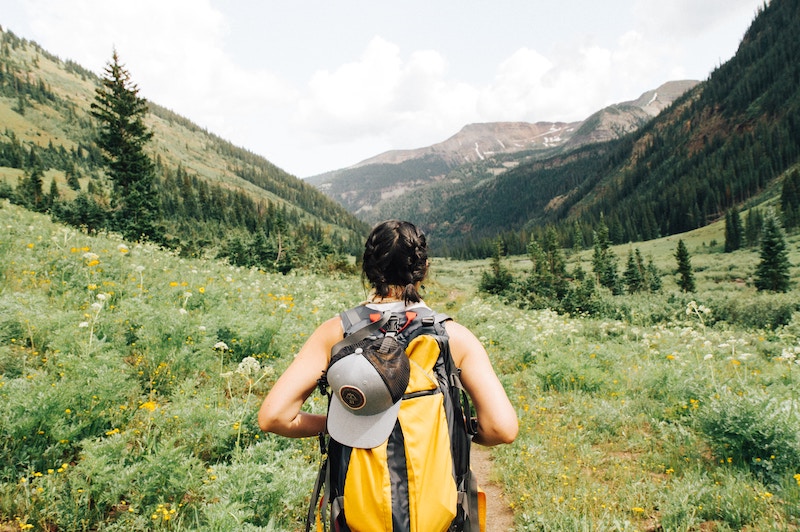Disclaimer: This post contains affiliate links. At no cost to you, I might earn a small commission if you make a purchase through the links in this article.
If you’re heading to Denver for an upcoming trip, there’s something you should keep in mind – the altitude. Denver sits at a lofty elevation of 5,280 feet (or one mile) above sea level, which means the air is thinner and has less oxygen.
As a result, you could experience Denver altitude sickness, which can range from mild symptoms like headaches and dizziness to more severe ones like nausea and difficulty breathing.
Denver’s elevation is 5,280 feet above sea level and this elevation can cause altitude sickness in some people, which can range from mild symptoms like headaches and dizziness to more severe ones like nausea and difficulty breathing.
➡️ Learn about One Million Dollar Highway – one of the prettiest drives in Colorado
In this article, we will discuss everything you need to know about Denver altitude sickness and how to prevent it, so pack your bags because we’re learning everything we need to know about having a fun and safe trip to Denver!
What’s the altitude of Denver?
The altitude of Denver is 5,280 feet (or one mile) above sea level.

Where is Denver located?
Denver is located in the state of Colorado, in the western region of the United States. It is situated near the foothills of the Rocky Mountains and is the largest city in Colorado.
Denver is about 30 minutes from Boulder and Morrison, home to the famous Red Rock Amphitheater.
Denver is about an hour and a half from Rocky Mountain National Park, where the elevation is even higher than in Denver. If you want to visit, it is a good idea to acclimate to the elevation and make sure you research the best time to visit Rocky Mountain National Park, if you want to hike.
✅ Check my guide to the best Denver tours to see some of the best places near Mile High City
Is Denver in the mountains?
Denver is not in the mountains, but it is situated near the foothills of the Rocky Mountains. The city sits on the eastern side of the Front Range of the Rocky Mountains, which means that while it is not in the mountains themselves, it is close enough to offer stunning views of the mountains and easy access to outdoor recreational activities like hiking, skiing, and mountain biking.
✅ Find out how to get from Denver to Vail, one of the most popular mountain towns in Colorado
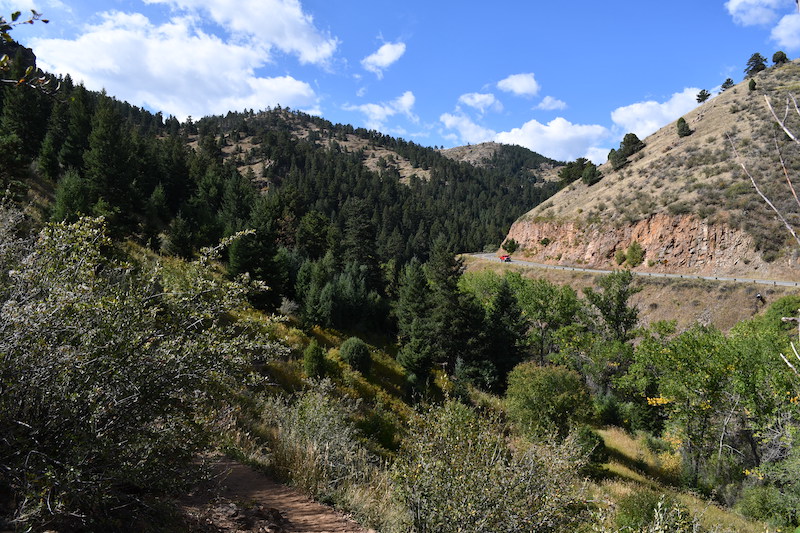
Denver altitude sickness symptoms
Altitude sickness, also known as acute mountain sickness (AMS), can occur in some people who visit Denver. These symptoms can begin to appear within hours or days of arriving at high altitude and can affect anyone, regardless of age, gender, or physical fitness level.
➡️ Read my guide on how to take Uber in Denver Airport
It’s important to recognize the signs of altitude sickness and take steps to prevent it from worsening, as severe altitude sickness can be dangerous and even life-threatening.
Symptoms of altitude sickness:
- Headaches
- Dizziness or lightheadedness
- Nausea or vomiting
- Fatigue or weakness
- Shortness of breath or rapid breathing
- Difficulty sleeping
- Loss of appetite
How to treat altitude sickness:
- Rest and drink plenty of water
- Avoid alcohol and smoking, as these can worsen symptoms
- Take it easy and avoid strenuous activities for the first day or two of your trip
- Consider taking medications or supplements recommended by your doctor to prevent altitude sickness
- If your symptoms do not improve or become more severe, seek medical attention immediately
- If you plan on engaging in outdoor activities, make sure to pace yourself and take breaks as needed.
✅ Read: How to Uber from Denver to Breckenridge
Boost Oxygen is a good thing to have while visiting Denver, if you tend to start having side effects this can help alleviate them along with water and rest.
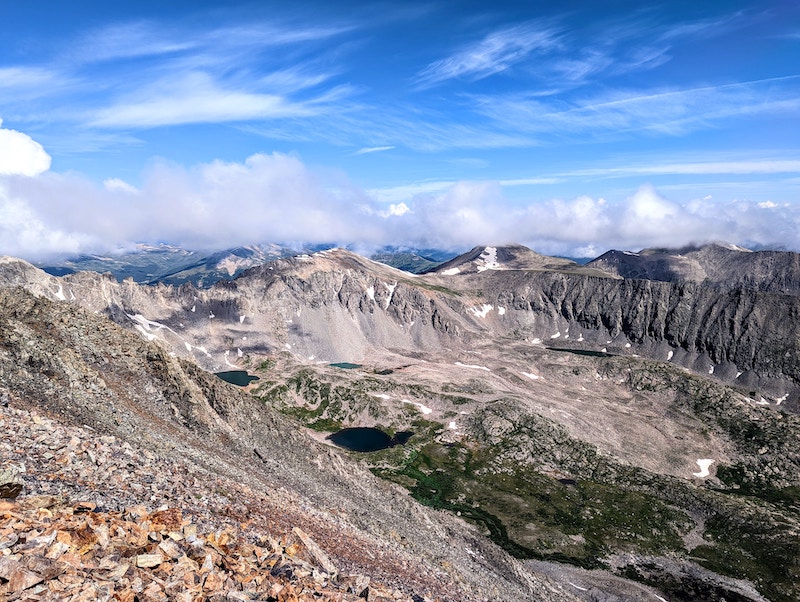
What are the highest peaks near Denver?
When you become adapted to the altitude, a popular activity in Colorado is summiting a “14-er,” a mountain with altitude that’s higher than 14,000 feet. This is usually done during the summer when the snow melts when hikers try to summit Colorado’s 14,000 ft mountains.
Here are some of the highest peaks near Denver:
1. Mount Bierstadt
Standing at an elevation of 14,060 feet, Mount Bierstadt is a popular hiking destination located about 60 miles west of Denver. The hike is considered to be moderately difficult and offers stunning views of the surrounding mountains and valleys.
To get to Mount Bierstadt from Denver, take I-70 west from Denver to the Georgetown exit, then follow the signs to Guanella Pass.
2. Chicago Lakes
The Chicago Lakes Trail is a 9.3-mile hike located in the Mount Evans Wilderness, with a maximum elevation of 11,880 feet. The trail offers beautiful views of alpine lakes and wildflowers. Take I-70 west to Idaho Springs and follow the signs to Echo Lake.
3. Chasm Lake
Chasm Lake is a challenging 8.4-mile hike located in Rocky Mountain National Park, with an elevation gain of over 2,500 feet and a maximum elevation of 11,760 feet. The hike offers stunning views of Longs Peak and the surrounding landscape.
To get to Chasm Lake from Denver, take US-36 west from Denver to Estes Park, then follow the signs to the Longs Peak Trailhead.
4. Quandary Peak
Standing at an elevation of 14,265 feet, Quandary Peak Trailhead is a popular 14er about 85 miles west of Denver. The hike is moderately difficult and offers panoramic views of the surrounding mountains.
To get to Quandary Peak from Denver, take I-70 west to Frisco, then head south on CO-9 to Blue Lakes Road.
5. Golden
Those visiting Denver can easily reach these hiking destinations by car, with many trailheads within a few hours’ drive of the city. If you are looking for hikes that are less elevation and closer to the city, check out Golden, one of the best short road trips from Denver.
Golden is about 30 minutes away from Denver and has some pretty incredible hikes that are not as strenuous such as North Table Mountain Loop, Chavez, and Beaver Brook Trail.
How to visit the highest peaks near Denver?
To visit the highest peaks near Denver, you will need a car. Public transportation is scarce outside of Denver, and although you can catch a bus to many mountain towns, you will need a vehicle to access hiking trails outside the city.
I recommend and use DiscoverCars, a popular car rental platform that allows you to browse thousands of vehicles at affordable rates.
DiscoverCars have no hidden fees or surcharges, and you pay exactly what you see online.
✅ CLICK HERE TO CHECK RATES ON DISCOVER CARS

How to prepare for Denver altitude
But don’t worry, there are things you can do to minimize the effects of altitude. First and foremost, make sure to stay hydrated by drinking plenty of water. This will help your body adjust to the altitude and prevent dehydration, which can worsen altitude sickness.
➡️ Read: how to rent a car in Denver
You can also take it easy for the first day or two of your trip, allowing your body to acclimate to the altitude. Avoid strenuous activities and take breaks as needed. If you do plan on doing outdoor activities like hiking or skiing, it’s important to pace yourself and listen to your body.
In addition, consider talking to your doctor about medications or supplements that can help prevent altitude sickness. Taking ibuprofen or using oxygen could alleviate symptoms.
How to Prepare for Denver Altitude Ahead of Your Trip
To avoid altitude sickness during your trip to Denver, there are some things you can do ahead of time. Start hydrating several days before your trip by drinking at least 8-10 glasses of water per day and avoiding alcohol and caffeine.
Check: When does it snow in Colorado?
Regular exercise can help prepare your body for the stress of high altitude, so start exercising several weeks before your trip. Consider talking to your doctor about taking over-the-counter medication to alleviate altitude sickness symptoms. Finally, a healthy diet rich in carbohydrates and lean proteins can help your body adjust to the altitude, so start eating healthy several days before your trip.
How to acclimate to Denver altitude once you arrive
Once you arrive in Denver, take it easy for the first day or two to let your body acclimate to the high altitude. Avoid strenuous exercise or physical activity, like difficult running or biking paths until you feel adjusted. Drink plenty of water and eat light meals instead of heavy, fatty ones.
Dress appropriately for the weather, as it can be unpredictable in Denver. If you do experience symptoms of altitude sickness, such as headaches, nausea, or shortness of breath, rest and stay hydrated. Seek medical attention if necessary.
How to avoid altitude sickness in Denver?
- Drink plenty of water – Staying hydrated can help your body adjust to the altitude, so make sure to drink plenty of water before and during your trip to Denver.
- Avoid strenuous hikes – Give your body time to adjust to the altitude before attempting a strenuous hike. Start with short, easy walks and gradually increase your activity level.
- Take good rest – Allow your body time to adjust to the altitude by taking it easy and getting plenty of rest. Avoid strenuous physical activity for the first day or two of your trip.
- Limit alcohol consumption – Alcohol can dehydrate you and exacerbate the symptoms of altitude sickness, so it’s best to limit your alcohol consumption while in Denver.
- Travel with someone else – If you start experiencing altitude sickness, having a travel companion can be crucial in getting the help you need, especially in severe cases.
- Use plenty of sunscreen – With over 300 days of sunshine per year, Colorado’s high-altitude sun can be intense. Apply plenty of sunscreen to avoid sunburn, which can exacerbate the symptoms of altitude sickness.
- Wear proper sunglasses – The high-altitude sun can also be harsh on your eyes. Make sure to wear good sunglasses with UV protection to protect your eyes and avoid headaches.
- Watch what you eat – Altitude sickness can cause nausea and loss of appetite, but it’s essential to eat enough to keep your body fueled. Try to limit your salt intake and eat more carbs, but avoid overeating. Foods rich in potassium, such as bananas and avocados, can help alleviate the symptoms of altitude sickness.
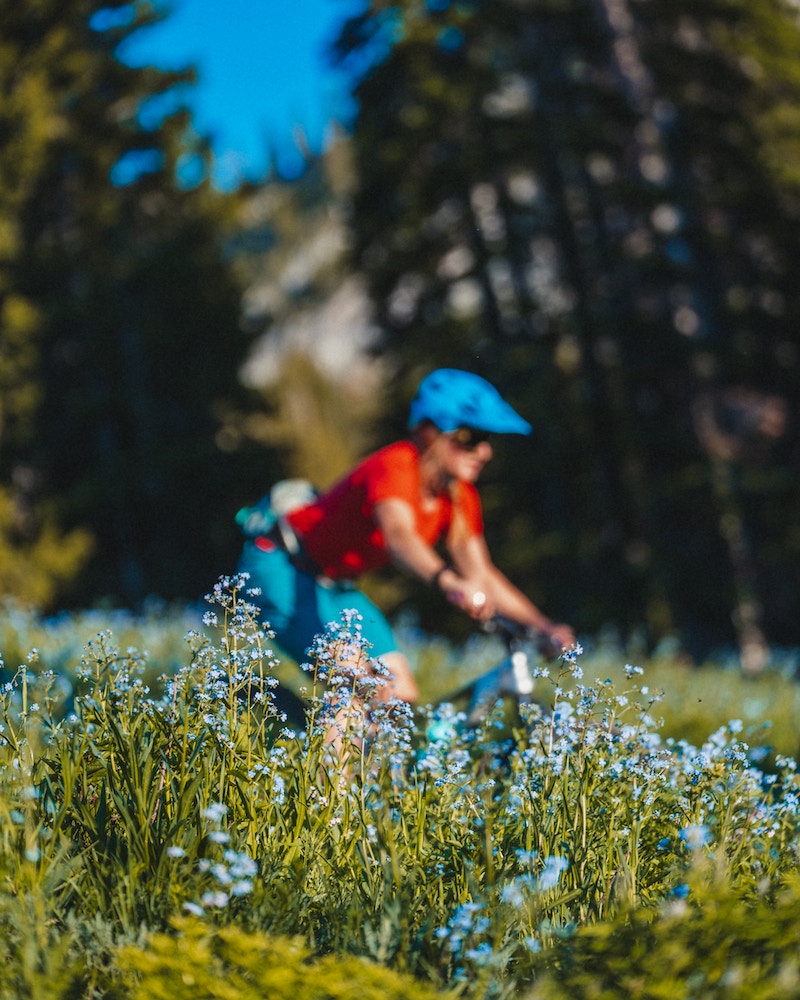
Running in Denver altitude
Exercising in Denver’s higher altitude can be challenging, even for seasoned runners. The decreased oxygen levels at higher elevations can cause shortness of breath, increased heart rate, and fatigue. However, with some preparation and precautions, it’s possible to enjoy a good run in Denver.
➡️ Best things to do in Aspen in summer
- Give your body time to acclimate to the altitude – It’s recommended to wait at least 24 to 48 hours before doing any strenuous exercise. Start with shorter runs and gradually increase your distance and intensity over time.
- Take breaks as needed – If you start feeling lightheaded, dizzy, or experiencing any other symptoms of altitude sickness, stop running immediately and seek medical attention if necessary.
- Drink plenty of water – It’s also crucial to stay hydrated while running at Denver’s altitude. Drink plenty of water before, during, and after your run to avoid dehydration.
- Avoid caffeine and alcohol before your run – they can exacerbate the symptoms of altitude sickness.
- Wear right clothes – Finally, dress appropriately for the weather and wear sunscreen to protect your skin from the intense high-altitude sun.
By taking these precautions and listening to your body, you can enjoy running in Denver’s beautiful mountain scenery without putting your health at risk.
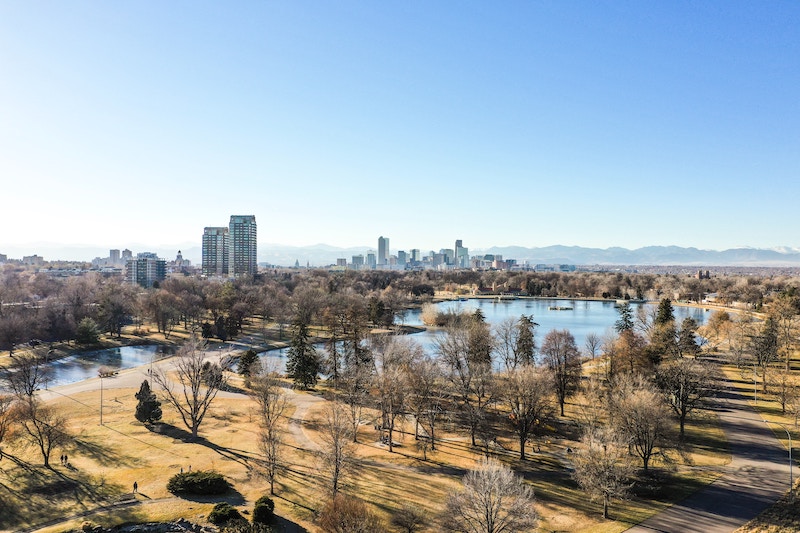
Working out in Denver altitude
Working out in Denver’s high altitude can have some unique effects on your body, even beyond the challenges of running or other high-intensity exercises. At higher altitudes, there is less oxygen in the air, which can make it harder to breathe during exercise.
This can make your heart and lungs work harder to supply oxygen to your muscles. As a result, you may feel more fatigued or out of breath during your workout, even if you are in good shape. It’s important to listen to your body and take breaks as needed.
Read: How to plan a perfect Colorado road trip
In addition to the challenges of oxygen intake, it’s also important to stay hydrated while working out at Denver altitude.
The dry climate can cause you to lose more water through sweating, which can lead to dehydration if you’re not careful. Make sure to drink plenty of water before, during, and after your workout to stay hydrated and avoid exacerbating the symptoms of altitude sickness.
If you plan on hiking or doing a lot of physical activity in Denver, make sure you are prepared for the altitude changes and have all the proper gear when hiking the stunning Rocky Mountains. If you or someone you know is going to Denver you can never go wrong with getting them the best hiking gifts for a Denver trip!
Where to stay in Denver
Denver has plenty of great hotels, but if you want to explore downtown Denver, look for a place close to LoDo or Lower Downtown District, a neighborhood in the heart of Denver.
- Budget – Hostel Fish is one of the best hostels in Denver that offers shared and private rooms, a bar and a restaurant on site.
- Mid-budget – Staybridge Suites Denver Downtown is another great mid-range hotel in the city’s downtown that has a heated indoor pool, a hot tub and offers a daily buffet breakfast.
- Luxury – Four Seasons Denver is one of the most popular high-end hotels in Denver that boasts a beautiful rooftop pool, a spa, a gym and a restaurant.
Denver altitude sickness: FAQ’s

Is Denver high enough for altitude sickness?
Denver’s altitude of 5,280 feet above sea level makes it a prime location for altitude sickness, especially for those coming from lower elevations. While not as high as some of the mountain peaks in the surrounding areas, Denver’s altitude can still cause symptoms of altitude sickness in some people.
How long does it take to adjust to Denver altitude?
The length of time it takes to adjust to Denver’s altitude can vary depending on the individual. Some people may start feeling better within a day or two, while others may take several days or even a week to fully acclimate. It’s important to take it easy during the first few days and allow your body time to adjust to the altitude.
Why is Denver’s altitude so high?
Denver’s altitude is largely due to its location on the eastern side of the Rocky Mountains, which rise up to the west of the city. Over millions of years, the movement of tectonic plates caused the land in this area to rise and form the mountains we see today. Denver’s altitude of 5,280 feet was actually chosen in the 19th century as the official “mile high” mark, and the city has since embraced its high altitude as part of its identity.
Denver altitude sickness: final word
Denver’s altitude may take some getting used to, but it’s nothing that a little preparation and awareness can’t handle. While altitude sickness can be a drag, it’s not the end of the world. Remember to drink lots of water, take it easy on the alcohol, and watch out for those sneaky sunburns.
Denver altitude is part of what makes it unique and adventurous, so don’t let a little shortness of breath stop you from exploring all the city has to offer. So, come for the mountains, stay for the altitude.
